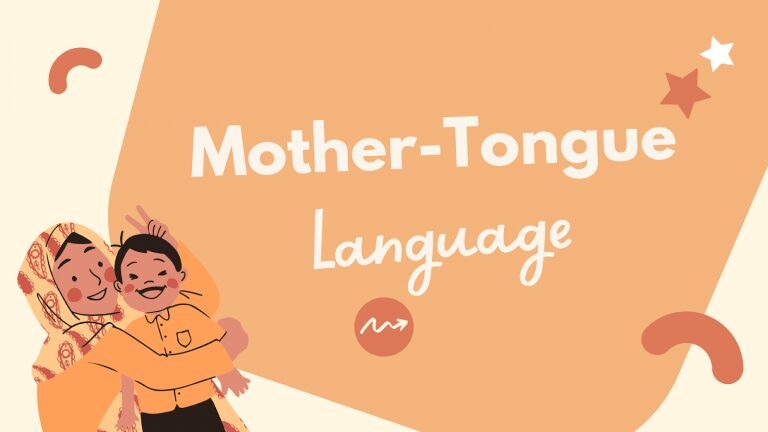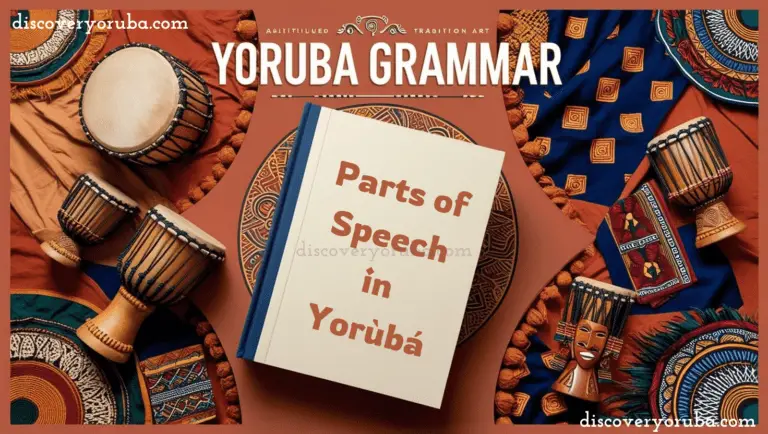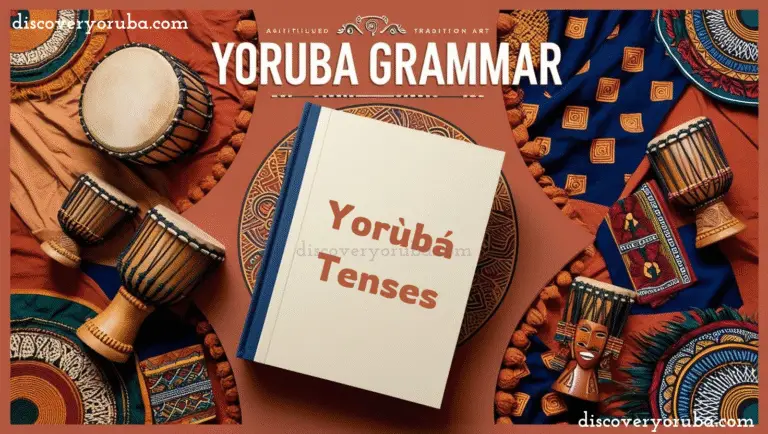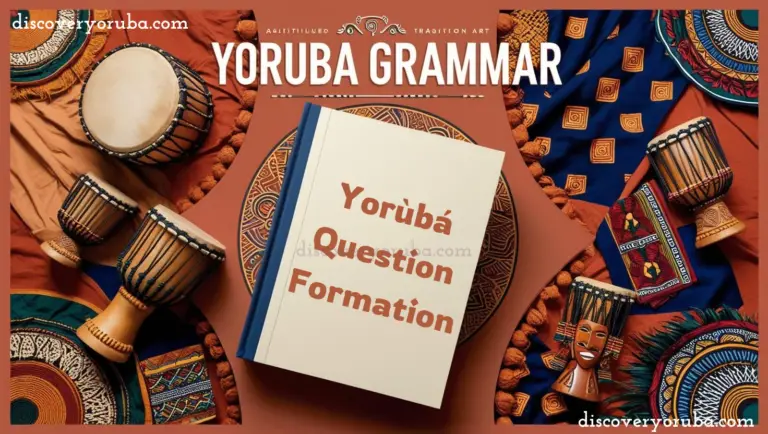DiscoverYoruba.com is your one-stop for embracing Yoruba culture, entertainment, and history unfolding.
The Yorùbá people from West Africa, especially in Nigeria, are known for their vast wisdom expressing through proverbs (Òwe). Yoruba proverbs are a mixture of life lessons, cultural values, heritage, and teach morals, passing them from generations to generation. Despite Yorùbá ancient origins, the proverbs is relevant in modern days and society.
10 Yoruba Proverbs for Everyday Use
Below are Ten of numerous Yorùbá proverbs and how they can be used or applied.
1. Kí a dé igbó kí a má fọ’hùn ló ńmú ẹyẹ oko ṣu sí’ni lórí
To get to the forest and make no sound is how bird droppings land on one’s head.
Inactivity can make you a target. Staying still, stagnant, or quiet in the face of life’s movement often invites problems. In today’s world, this speaks to the risk of complacency or passivity. Keep moving, stay active, and make your presence known, or you might be left behind—or worse, stepped on.
2. Bí èèyàn ò bá ní ìwà ọmọlúwàbí, ohun rere ló bọ sọnù mọ ọ lọwọ, kò tì í fura ni
If one lacks good character, he’s lost a good thing; he just hasn’t realised it yet.
This reminds us that integrity and good behaviour are irreplaceable. You might still have your job, relationship, or opportunity, but without character, it’s only a matter of time before it slips away. In personal branding, business, or relationships, character is the currency that sustains everything.
3. Ohun ọwọ mi kò tó, ma fi gọngo fa
“What my hand cannot reach, I should not use a hook to pull.”
This proverb imparts contentment and advises against greed or going beyond one’s strength or capabilities. In this modern life, it relates to people who attempt to gain things they are not ready for, it may be business, ambition or relationship. It teaches patience, proper preparation, and one should know his/her limits instead of being desperate or unethical means to achieve goals.
4. Ẹyìn kùlé l’òta wa, inú ilé, ni aseni ngbé
“The enemy is outside the gate, but the true traitor lives within the house.”
This Proverb (Òwe) give emphasis that without internal betrayal or enemies, there can’t be external threats. The most dangerous betrayals often come from within, whether from close friends, family members, or trusted associates. This applies to politics, personal relationships and business. Internal sabotage is more damaging that external attacks. It serves as a reminder to be mindful of those closest to us and not focus on external enemies.
5. Ẹni ayé ńṣe ò tó nǹkan; ẹni ìwà ńjákulẹ ló pọjù
Those troubled by people are not much; those brought down by their bad character are much more.
Blaming the world is easy, but often, the problem lies within. This proverb is a self-check: Are your setbacks from external forces, or are your habits and behavior the real roadblocks? In today’s self-development culture, it’s a lesson in accountability.
6. Ìbùkún ẹ̀yìn ní ń san ju ti iwájú lọ
“The reward that comes later is greater than the one that comes immediately.”
This explains that patience and perseverance. In today’s world of instant gratification, success is often a long term effort. Diligence, persistence, and powerful strategic planning yields better rewards than shortcuts.
7. Omi l’ènìyàn
“Humans are like water.”
This suggests that people are fluid and adaptable. It reminds us of the importance of relationships and networking. In today’s interconnected world, social connections and collaboration can open doors to opportunities.
This illustrates that people are liquid and flexible. It reminds us of how important is relationship and networking. The world is interconnected, social connections and cooperation can open doors to opportunities.
8. Bí àdúrà bá gbà tán, apá aládúrà ò ní ká a.
When a prayer is answered, the person who prayed would be overwhelmed.
We often underrate how completely our hopes can be achieved. This gives us a gentle reminder to pray and believe in God, as well be prepared. The answers to the prayer we are expecting can come in ways that stretch us, test us or even excess into our loves when we do not expect.
9. Ẹni à bá tà ká fi ra àtùpá, tó ní òun di ẹni àjítannáwò
A person who should be sold and the proceeds used to buy a lamp, but who boasted he or she should be adored.
This is a classic call-out of pride and self-deception. In today’s world of clout-chasing and inflated egos, it urges humility. Know your worth, but don’t inflate your value. True respect is earned, not claimed.
This proverb is so classic such that it is a great call=-out of pride and self-deception. In this contemporary world, where everyone is chasing clout and inflated ego, it needs humility. Know your worth, know your value, but never inflate your value. Respect is earned, not claimed
10. Gbogbo ènìyàn l’ọmọ aráyé, ṣùgbọ́n kì í ṣe gbogbo ènìyàn l’ọ̀rẹ́
Everyone is part of the human race, but not everyone is a friend.
This proverb is very deep because it reminds us to be sensitive in relationships. In this age of social media, where connections are easily made, it is important to differentiate between associates and true friends. Trust should be earned, and not given freely.
Yorùbá proverbs remain a valuable source of wisdom, guiding people through the complexities of life. While they are rooted in traditional society, their lessons are timeless and applicable in modern contexts. From financial management to personal relationships and work ethics, these Yoruba proverbs provide insight that can help individuals navigate the challenges of today’s world.
Yorùbá proverbs (òwe) remains a valuable source of wisdom, guiding people through the complexities of life. While they are deep-rooted in traditional society, their lessons are timeless and evergreen, they are applicable in modern contexts. From financial management to individual relationships and work ethics, these Yoruba proverbs (òwe) provide awareness that can help individuals navigate the challenge of today’s world.

References
- Fagunwa, D. O. (1950). Ogboju Ode Ninu Igbo Irunmole.
- Owomoyela, O. (2005). Yoruba Proverbs. University of Nebraska Press.
- Olatunji, O. O. (1984). Features of Yoruba Oral Poetry. University of Ibadan Press.










